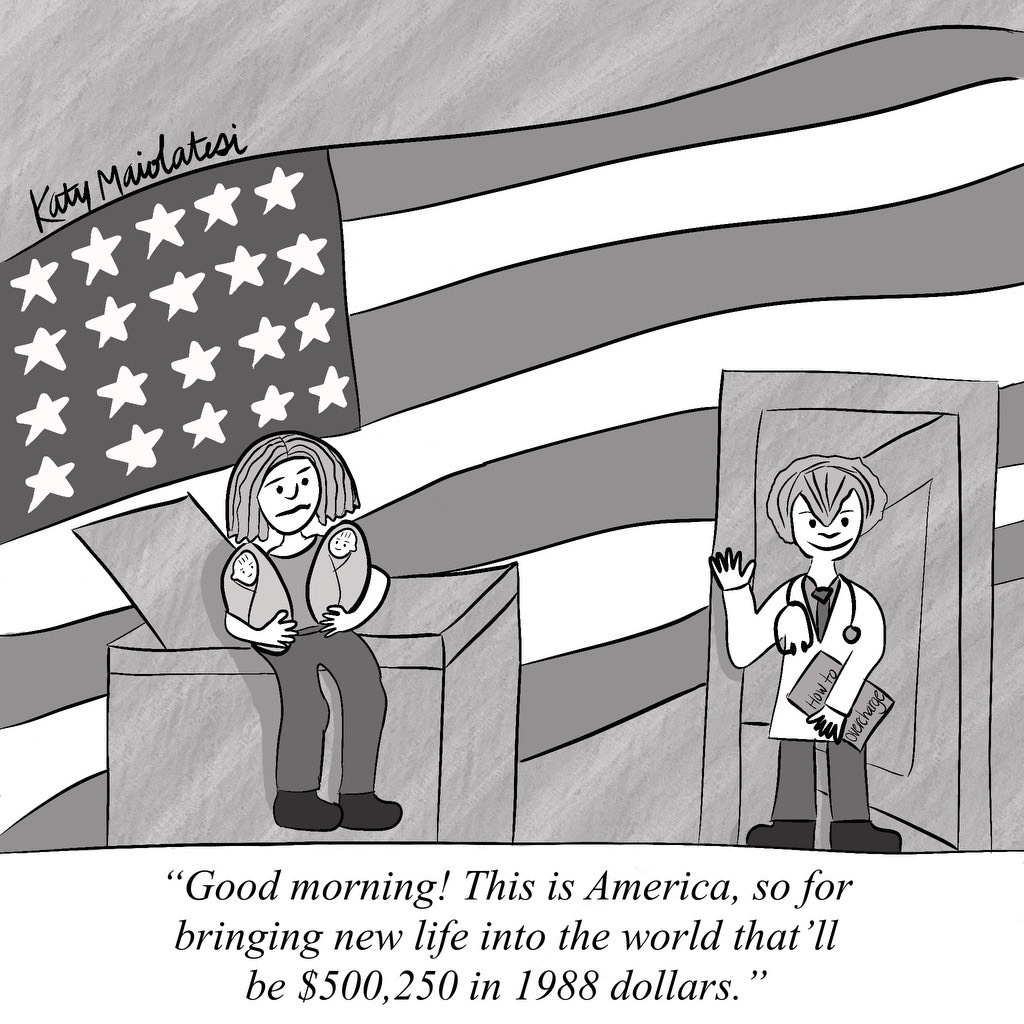Twins In the NICU: Terrifying. The Hospital Bills: Also Terrifying
Written by Sandi Marx / Illustration by Katy Maiolatesi
When I got pregnant with my first baby, I had no idea what was in store for me. First, I should have said “first babies.” Imagine my shock when the sonogram tech offhandedly told me that “twin A and twin B look great.”
Fortunately, the next sixth months were largely uneventful — until my water broke.
It was the middle of the night, the week before Christmas, 1988. My husband and I rushed to the Women’s Hospital of the Upper West Side. Following 36 terrifying hours of labor, I had an emergency C-section and saw my new baby girls enter the world. Each weighed less than five pounds. Nestled in their preemie warmers, they were like gerbils under a heat lamp – or diner cheeseburgers waiting to be served.
For seven weeks, we practically lived at the hospital as we watched Kira and Lindsey – my beautiful A and B – held them, and tube-fed them. The NICU was so crowded (the AIDS crisis was in full effect) and understaffed that it was our responsibility to keep our daughters stable. At least once a day, when a chorus of beeps and bells told us that one had stopped breathing, a nurse calmly yelled in our direction, “Shake her!”
Scary, but it worked.
Not long after our little family was discharged, hospital bills and statements began filling our mailbox. At first, I let the pile grow. I finally decided I’d take a peek out of morbid curiosity, knowing our insurance should cover almost all of this debt. Stunned, I thought the final total had to be a typo: how could our bill be for over $500,000? (With inflation, that’s probably over a million today!) As I flipped through page after page, it was clear that we’d been consistently overcharged. A doctor sticking his head in the door and saying” Good morning!” would be billed as a $250 “consult.” Madness.
When I calmly asked my obstetrician about it, she told me that it’s a common practice: the healthcare system is broken, and the only way the hospital can be assured they are fairly paid is if they “pad the bills.”
My daughters are healthy adults — one a mother herself — and I’m grateful to every hardworking nurse and doctor who taught me patience (and how to properly shake a preemie). But padding should be for cribs, not for hospital bills!
Written by Sandi Marx / Illustration by Katy Maiolatesi






